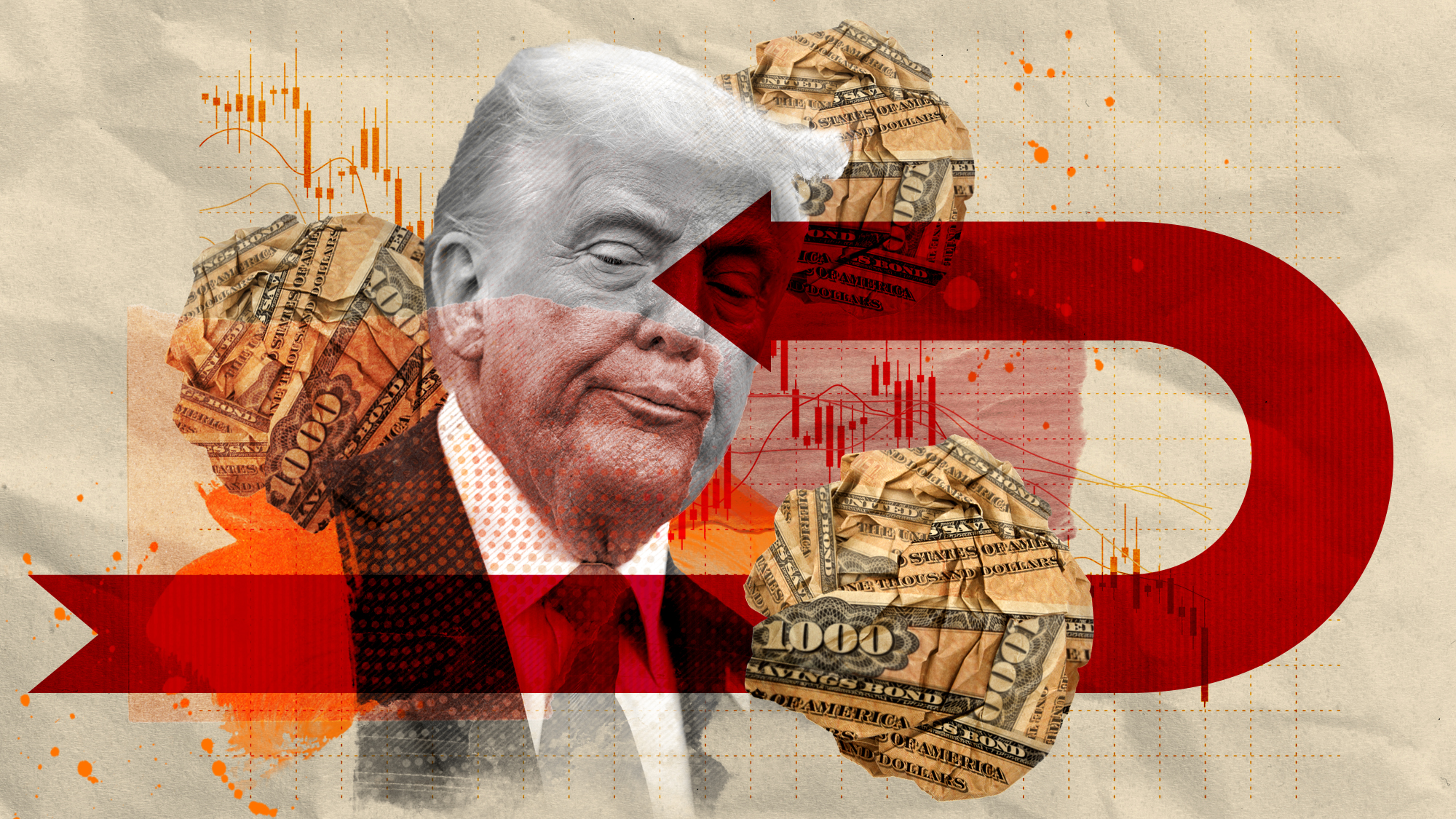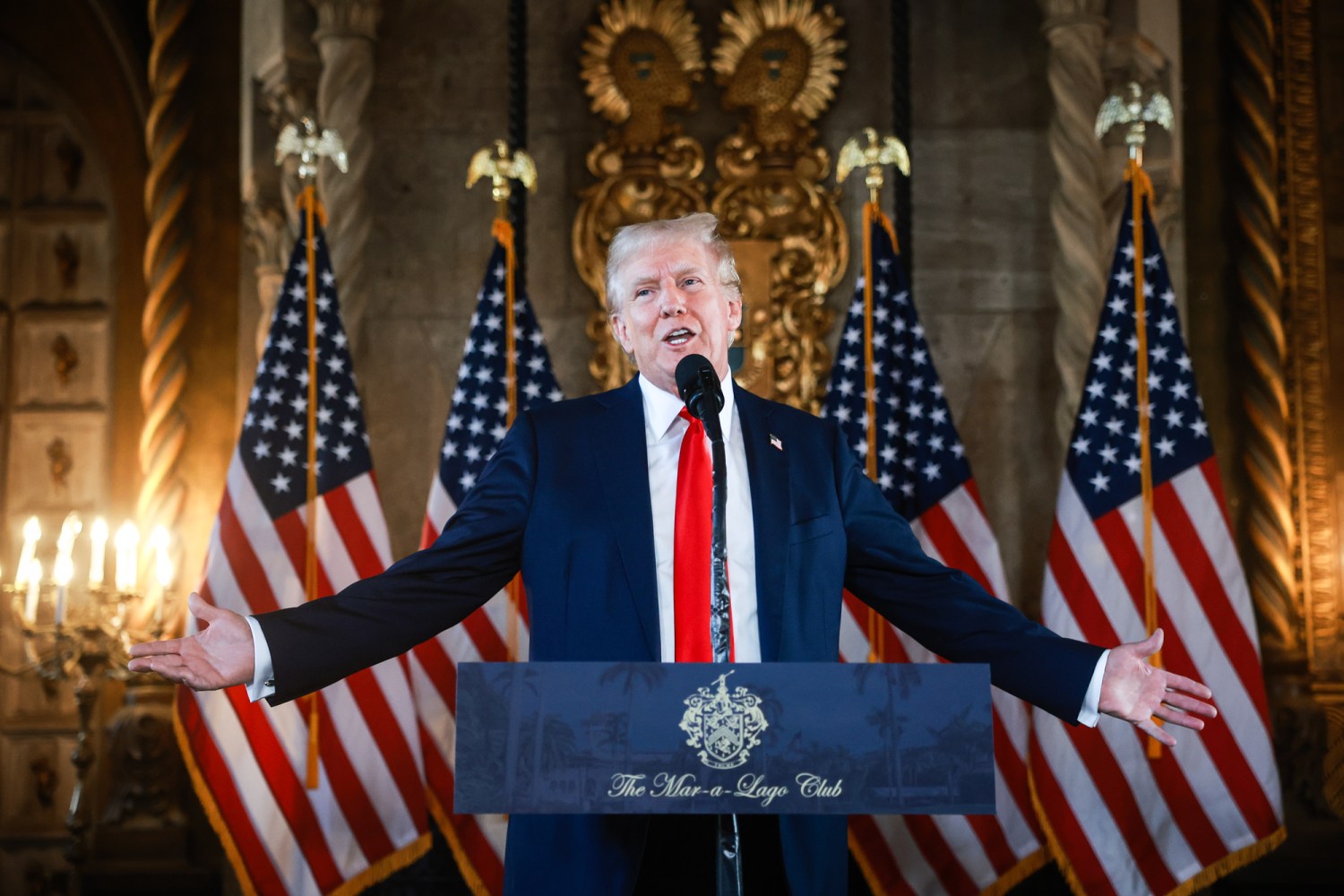How the US bond market works – and why it matters

SUBSCRIBE & SAVE Less than $3 per week View Profile The Explainer Talking Points The Week Recommends Newsletters From the Magazine The Week Junior Food & Drink Personal Finance All Categories Newsletter sign up the explainer How the US bond market works – and why it matters Donald Trump was forced to U-turn on tariffs after being 'spooked' by a sharp rise in Treasury yields Newsletter sign up Government bonds are 'essentially an IOU' on a massive scale, issued to pay for spending on public services (Image credit: Illustration by Marian Femenias-Moratinos / Getty Images) The Week UK 28 April 2025 "I used to think that if there was reincarnation, I wanted to come back as the president or the pope or as a .400 baseball hitter," said Democratic Party strategist James Carville in the 1990s. "But now I would like to come back as the bond market. You can intimidate everybody." US government bonds, known as Treasuries, are "traditionally seen as a safe haven because they are guaranteed by the world's biggest economy", said The Guardian. But recent turmoil in the US bond market has called that certainty into question – and brought Donald Trump's tariff blitzkrieg to an abrupt halt. What is the bond market? Government bonds are "essentially an IOU", said the BBC. Used to raise money for public spending, they are issued with different "maturity" rates, most commonly over two, 10 or 30 years. Investors receive a fixed annual return, known as a coupon rate, for the term of the bond, but they can also sell the bond. This is mainly done by financial institutions like pension funds, as well as by central banks like the US Federal Reserve and the Bank of England. Subscribe to The Week Escape your echo chamber. Get the facts behind the news, plus analysis from multiple perspectives. SUBSCRIBE & SAVE Sign up for The Week's Free Newsletters From our morning news briefing to a weekly Good News Newsletter, get the best of The Week delivered directly to your inbox. From our morning news briefing to a weekly Good News Newsletter, get the best of The Week delivered directly to your inbox. What are yields and why do they matter? Donald Trump's "Liberation Day" tariffs shook global confidence in the stability of the US economy. Spooked investors began offloading their US government bonds, causing the value of the bonds to fall and their yield – the amount an investor can expect to make in proportion to what they paid – to increase. The yield on 10-year Treasuries – considered "one of the key rates in the economy", said CNN – shot up from 3.9% to 4.5%. This represents a seismic shift when you consider movements of 0.2% in either direction are a "big deal", said the BBC. It matters because when yields on existing bonds are higher, the government has to offer higher coupon rates to attract buyers for new bonds to fund new spending. That increases the cost of borrowing, which in turn "underpins a range of other borrowing costs for everyday Americans", including mortgage rates and business loans for everything from small enterprises to large corporations, said CNN. Ultimately, Trump was forced to back down on his tariffs plans after being "spooked" by the shifting bond market, Ed Yardeni, president of Yardeni Research, told CNN. In fact, the ability of bonds to rapidly alter government policy is "well documented", said Al Jazeera. In 2022, UK prime minister Liz Truss was "brought down by her own skirmish with the bond markets" after just 49 days in office, said The Guardian. They judged her so-called mini-budget fiscally reckless, sending the yield on UK government bonds "rocketing" as the bond value "dropped like a stone", which in turn "forced mortgage companies to increase borrowing rates and wrecked Truss’s premiership". Trump may have "more resources", but "he faces similar concerns about the spillover effects". Where does China come into it? Foreign ownership of US bonds has almost doubled since 2010, rising by $3 trillion, according to Deutsche Bank. China is the second biggest holder of US government debt globally, after Japan, with close to $761 billion (around £570 million). Currently subject to a 145% tariff on US exports, Beijing faces a "stark choice", said The Times: eat the losses or "risk economic turmoil by offloading US treasuries", which would damage its own dollar-denominated portfolio, which amounts to $3 trillion. A strategic mass dumping of US bonds is China's potential "nuclear option", said The Telegraph. The "blow to the US would be seismic", although the "scenario is highly unlikely, not least because the pain for China would be huge". Explore More Donald Trump Stock market Sign up for Today's Best Articles in your inbox A free daily email with the biggest news stories of the day – and the best features from TheWeek.com Contact me with news and offers from other Future brandsReceive email from us on behalf of our trusted partners or sponsorsBy submitting your information you agree to the Terms & Conditions and Privacy Policy and are aged 16 or over. The Week UK Social Links Navigation Virginia Giuffre: Prince Andrew accuser who stood up to 'power, money and privilege' In The Spotlight Woman at the centre of Jeffrey Epstein scandal and advocate for sex trafficking victims, has died aged 41 BySorcha Bradley, The Week UK Best marmalades in the world The Week Recommends From World Marmalade Awards-winning yuzu and pear to thick-cut Seville standouts ByIrenie Forshaw, The Week UK Ponant Le Champlain: an immersive Caribbean voyage The Week Recommends On board the luxury French operator's eight-night cruise from St Lucia to the West Indies ByRachel Roberts You might also like Why does the US need China's rare earth metals? Today's Big Question Beijing has a 'near monopoly' on tech's raw materials ByJoel Mathis, The Week US How will Wall Street react to the Trump-Powell showdown? Today's Big Question 'Market turmoil' seems likely ByJoel Mathis, The Week US US Treasuries were a safe haven for investors. What changed? Today's Big Question Doubts about America's fiscal competence after 'Liberation Day' ByJoel Mathis, The Week US Who would win in a China-US trade war? Today's Big Question Tariff pain will be higher for China but Beijing is betting it can weather the storm ByHarriet Marsden, The Week UK Lesotho: the tiny African nation in the crosshairs of Trump's tariff war Under the Radar US president imposes 50% reciprocal levy on the impoverished state: the highest of his so-called 'Liberation Day' tariffs ByHarriet Marsden, The Week UK What is the job market's future after Trump's tariffs? Talking Points Economic analysts are split on what the tariffs could mean for employees ByJustin Klawans, The Week US Is this the end of globalisation? Today's Big Question American-led post-war order is 'finally starting to crumble' but that could bring about 'a more inclusive world' ByThe Week UK How could stock market slides affect you? Today's Big Question Pensions, prices and jobs at risk as Donald Trump's 'Liberation Day' measures take hold ByThe Week UK View More ▸ Contact Future's experts Terms and Conditions Privacy Policy Cookie Policy Advertise With Us The Week is part of Future US Inc, an international media group and leading digital publisher. Visit our corporate site. Future US, Inc. Full 7th Floor, 130 West 42nd Street










![Pakistan reinforces troops on the border with India, says invasion is imminent, and claims to only use nukes if Pakistan's existence is threatened. That's SO reassuring [News]](https://img.fark.net/images/2013/site/farkLogo2Big.gif)
!["The judge asked the juror 'Do you know anyone else here in the courtroom?'" 'Well, yes,' and he said, 'OK, who do you know?' and she said, 'My husband, the juror in the back' [Amusing]](https://usrimg-850.fark.net/z/zY/fark_zYtQT7Ybm6rAOOomC4n_iaMHalE.png?AWSAccessKeyId=JO3ELGV4BGLFW7Y3EZXN&Expires=1746417600&Signature=GLoUTlh2vjK4HcixEz0DPwuQsO4%3D)






